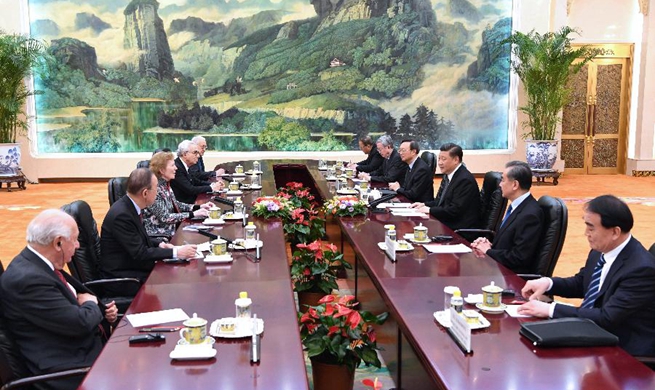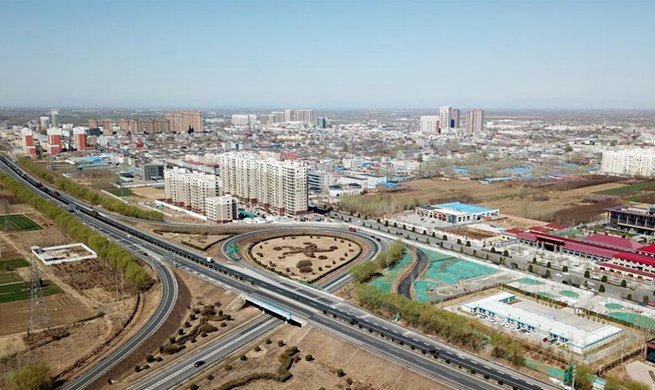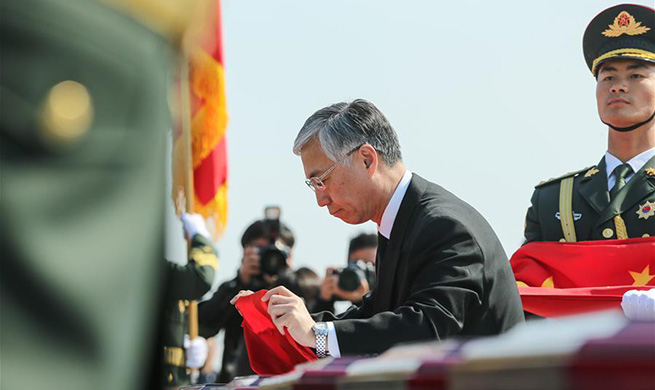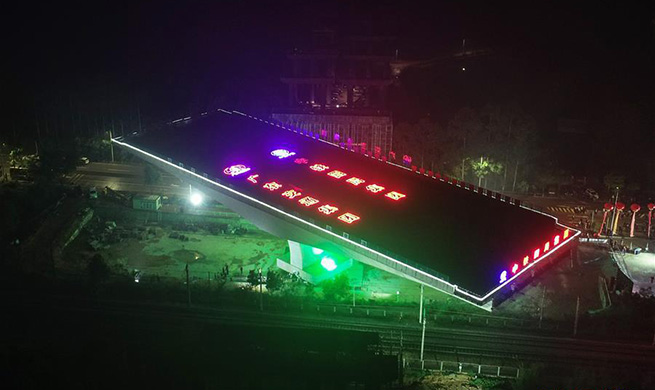TUNIS, April 3 (Xinhua) -- China's home-grown BeiDou Navigation Satellite System (BDS) has great potential in Arab countries, said secretary-general of the Arab Information Communications Technologies Organization.
Mohamed Ben Amor made the comment in an interview with Xinhua on the sidelines of the second China-Arab States BDS Cooperation Forum, which was held from Monday to Tuesday in Tunis, the capital of Tunisia.
Several memorandums of understanding (MoUs) were signed between Arab companies and Chinese institutions during the forum, which well served the objective of the event to promote exchanges between the two sides, said Amor.
The BDS, with its trial operation launched in 2011 and global service started last year, is indigenously-developed and independently-operated by China.
The system is compatible with other major navigation systems around the world, such as American GPS and Europe's Galileo system, and has high precision in positioning and navigation services, said Amor.
It is also capable of providing short message service, which is not available in other navigation systems, said the Arab satellite authority chief.
Since the first edition of the forum was held in Shanghai in 2017, Chinese-Arab cooperation over the BDS has achieved considerable progress.
In April 2018, the first overseas BDS/GNSS (Global Navigation Satellite System) center was established in Tunis to showcase the Chinese navigation satellite technology to the Arab world and boost international exchanges and cooperation in the field.
Through joint efforts between China and Arab countries over the past year, now most satellite authorities in the Arab region are aware of the BDS and its benefits, said Amor.
In addition, Tunisia has already launched a pilot program of adopting the BDS in a self-driving tractor to serve the smart agriculture sector, he said, adding that his organization is planning to bring the technology to the rest of the Arab world.
As the Arab governments are embracing the digital initiative, there is substantial potential for the wide use of the BDS in a variety of fields here, such as transport and energy, said Amor, adding that he thinks the BDS "has a bright future" in the Arab world.
Cooperation over the BDS was operated under the China-proposed Belt and Road Initiative (BRI), which aims to build a trade and infrastructure network connecting Asia with Europe and Africa through the ancient trade routes of the Silk Road.
China-Arab cooperation on the BDS adds "a new dimension" and new insight to the BRI, as it explores a "Space Silk Road" as an innovative and important way to promote exchanges and cooperation between the two sides, said Amor.
The Arab technology official concluded by saying that he believed the BRI will bring development and prosperity to the Arab region, as the initiative is based on mutually beneficial cooperation.
















